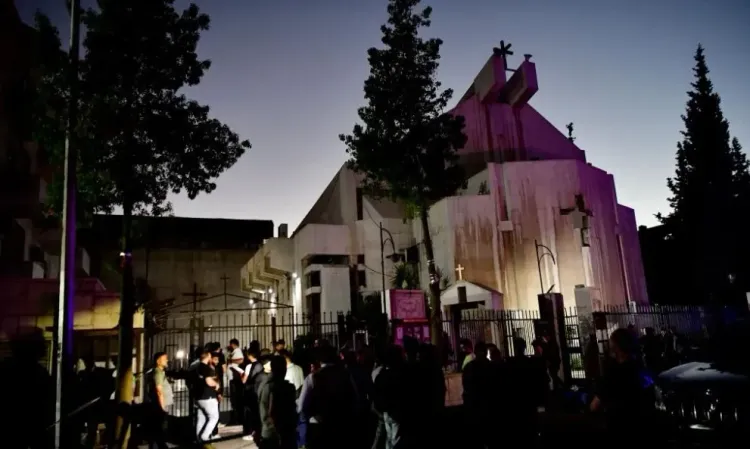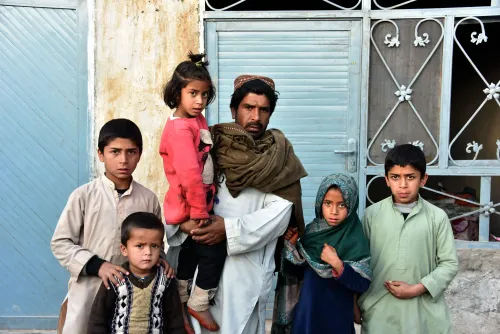How Did the Death Toll in the Damascus Church Suicide Bombing Climb to 22?

Synopsis
Key Takeaways
- 22 fatalities and 63 injuries reported in the bombing.
- Attack marks a significant shift in tactics against Christian sites.
- Authorities suspect Islamic State sleeper cells may be involved.
- The bombing has heightened fears of sectarian violence.
- Community urged to support blood donation efforts.
Damascus, June 23 (NationPress) A suicide bombing at a Damascus church has resulted in the deaths of at least 22 individuals and left 63 others injured. This incident marks the deadliest and first attack of its nature on a Christian house of worship in the Syrian capital in several years, according to officials.
As reported by Syrian authorities, two assailants invaded the Mar Elias (St. Elias) Orthodox Church located in the predominantly Christian Dweilaa neighborhood during the evening Mass. They opened fire on the congregants and detonated explosive belts at the entrance.
The Syrian Observatory for Human Rights, based in the UK, corroborated the death toll and indicated that women and children were among the casualties.
“This was a reprehensible act of terrorism. We first heard gunfire in the courtyard, then two men entered, opened fire on the congregation, and detonated themselves. Such an atrocity is a violation of every faith and every aspect of humanity,” stated parish priest Melatios Shtah.
“They were shouting sectarian slogans as they fired. Then everything went dark after the explosion,” said worshipper Lawrence Maamari to the Xinhua news agency, describing the panic that ensued inside the church.
The authorities cordoned off the area and urged residents to keep pathways clear for emergency services, while hospitals issued urgent requests for blood donations.
The observatory termed the bombing a “serious escalation,” noting that past attacks on Christian locations in Syria during the civil war were primarily acts of looting or sabotage, especially in regions previously held by the Islamic State (IS).
This attack signifies a change in tactics aimed at destabilizing societal peace and heightening sectarian tensions, it noted.
Interior officials indicated that preliminary evidence points to Islamic State sleeper cells, although no group has yet claimed responsibility.
Political analyst Mohammad Nader Al-Omari suggested the attack could be timed to take advantage of regional instability following a recent US strike on Iran.
Information chief Hamzah al-Mustafa condemned the bombing as a “cowardly action meant to undermine national unity” and assured that those responsible would face justice.
Since government forces regained control of surrounding regions in 2018, Damascus has been relatively free of significant attacks. However, Sunday’s bombing disrupted that tranquility and raised fears concerning the resurgence of IS in southern and eastern Syria.
“The state will not permit criminals to undermine society,” asserted Mazhar al-Wais, the country’s justice affairs chief, pledging swift and equitable trials for those behind the attack.








